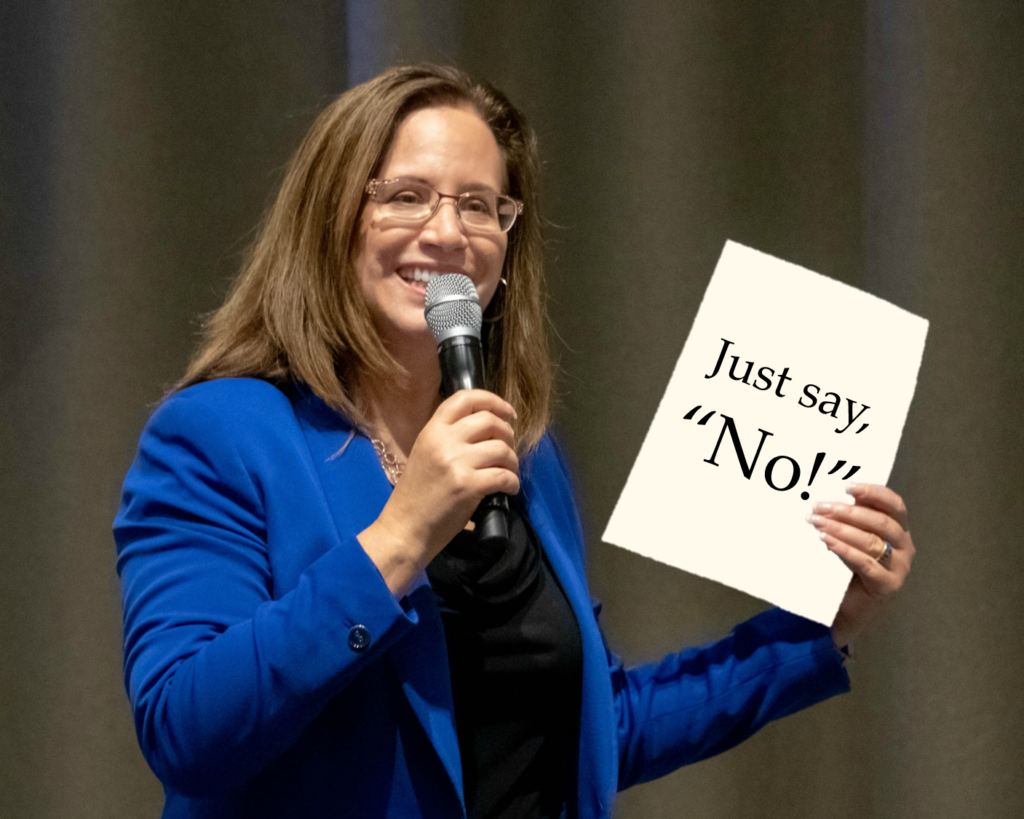I grew up in a home where “yes” meant “yes” and “no” meant “no.” And, conflict was not necessarily a problem. Not talking about issues was a problem. And, then I married into my husband’s Korean-Norwegian family (Korean mom, Norwegian dad). And I quickly learned that “No” doesn’t always mean “No.”
Shortly after we were married, we were driving home from visiting my husband’s parents and he said,“You know, my mom is mad at you.”
“What? Why?”
“You didn’t help with the dishes.”
“I offered to help,” I said, “but she said, ‘No.’”
“You only asked once,” he said, “You have to ask three times, and insist on the third time.”
“Are you kidding me?”
“No. That’s just how she does it–refusing the first few offers of help, but giving in when you insist.”
I was speechless for a moment. I felt badly that I had let my mother-in-law down. I felt misunderstood.
I had offered to help with the dishes, but respected that it was her house and that she had the right to do things her way, which might include me not helping. So, I had accepted her “no” at face-value.
I also accepted that I wasn’t going to change her communication style and adapted by not asking at all if she wanted help–I couldn’t bear to play the game–I just got up and helped.
I hated that a person’s “no” didn’t mean “no.”
Just as bad, if not worse, is when a person’s “yes” doesn’t mean “yes.”
Doesn’t it drive you crazy when a person says “yes” to a request and then resents you for asking? Or maybe they feel taken advantage of when they actually do what they agreed to? And, maybe they complain about it (usually to someone else).
Or . . . maybe you have been that person?
I think everyone would be happier, if people could just say, “No!” (and mean it!)
Sure, some people might feel like you are a jerk for saying “No,” but some people will think you are a jerk no matter what you say.
Saying “No” more often allows you to prioritize the important things in your life and to avoid burn out.
“No!” is a complete sentence, and sometimes all you need to say.
Of course, you can soften the “No” by using phrases such as:
- I’m sorry . . .
- I appreciate the offer . . .
- I’m just not interested, but thanks for asking . . .
- My plate is too full right now to take on one more thing . . .
- I’d love to, but I’m already committed to . . . (if you actually would love to, but can’t)
And, you can offer alternatives to saying yes, such as:
- I can’t do this now, but let me check with someone else . . .
- Maybe this doesn’t need to be done this way, have you thought of doing it this other way . . .
Please don’t use phrases such as “I need to think/pray about it,” unless you really mean them. Do everyone a favor and just say, “No!” Life is too short to waffle.
What about those times when someone has said “yes” to you and you hear that they are upset that they said “yes”?
If you are ultra-aware of that possibility, be proactive when you ask and try to verify (maybe even 3 times), “Are you sure?” Not. My. Style.
However, after the fact, it somewhat depends on the situation. If I can, I reach out to the person by phone or in person (not in an email), let them vent, apologize for my part in the misunderstanding, and I release them from their obligation if possible and reasonable, but without being a doormat myself.
For example, at a recent event, a friend asked an organizer for some extra tickets, which the organizer gave my friend. Later, after the event, the organizer complained to a 3rd party about giving out more tickets than they usually did, and suggested sending payment for the extra tickets. When the 3rd party asked my opinion on whether payment should be sent. I said, “No I wouldn’t send payment. They agreed to giving the extra tickets. The organizer could have said, ‘No. We only give out X tickets per group.'” To pay for tickets that were freely given, was a no-go for me. To do so would make me feel like a doormat. And part of me was annoyed at the lack of integrity of the organizer.
Be a person of integrity. Let your “no” be “no” and your “yes” be “yes.”
And, when you speak to one or to thousands, be considerate of your audience, but don’t just say what you think they want to hear. Speak your truth with confidence and integrity. Even when that means you have to . . .
Just say, “No!”


Great article Diane. Thank you for sharing that reminder.